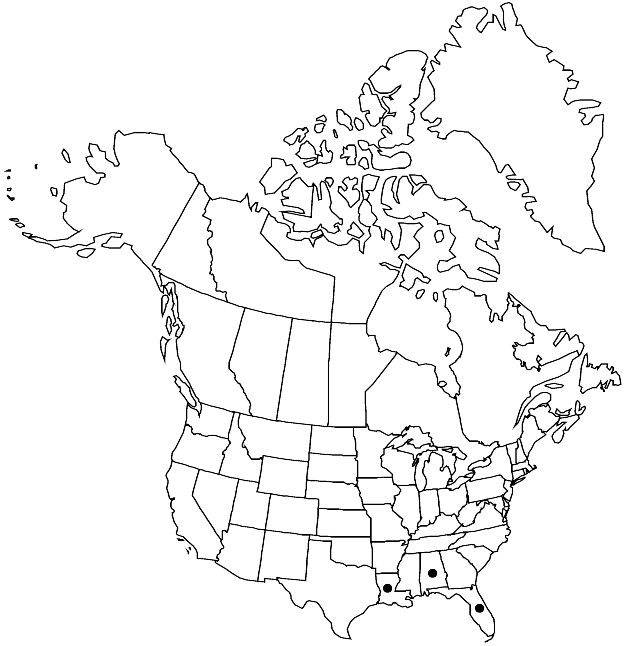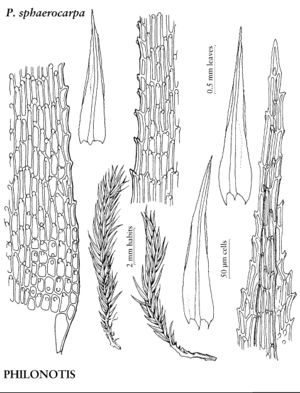Philonotis sphaerocarpa
Bryol. Univ. 2: 25. 1827.
Plants large, in dense tufts, yellowish, rufous proximally. Stems 1–3(–6) cm, erect, simple or 2-fid, tomentose proximally. Leaves erect, straight or somewhat homomallous when dry, erect-spreading when moist, lanceolate, 1.2–2 mm; margins strongly revolute, sharply serrulate throughout, teeth paired but often appearing in groups of 3 or 4 because of strongly revolute margins; apex acuminate; costa long-excurrent, distal abaxial surface scabrous; laminal cells quadrate to rectangular, less than 5:1, prorulose at distal ends, prorulae conspicuous, many; basal cells rectangular, 12–25 × 6–8 µm; medial and distal cells narrowly oblong, 18–35 × 3–5 µm. Specialized asexual reproduction absent. Sexual condition dioicous; perigonia gemmiform. Sporophytes unknown.
Habitat: Open soil, road banks
Elevation: low elevations (10-100 m)
Distribution

Ala., Fla., La., Mexico, West Indies, Central America, n South America.
Discussion
Philonotis sphaerocarpa is identified by its long-excurrent, scabrous costa, strongly revolute leaf margin, and laminal cells bearing prominent prorulae especially on the adaxial side. While not uncommon in the tropical portion of its range, the species is relatively rare in the flora area.
Selected References
None.
